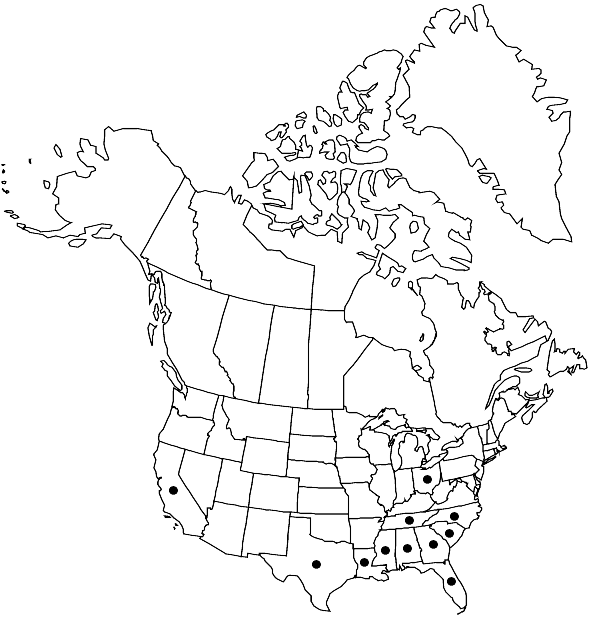Entosthodon drummondii
Musc. Hepat. U.S., 156b. 1856,.
Plants 1–5 mm, yellowish to brownish green. Leaves curved inward when dry, oblong ovate to obovate, somewhat concave, imbricate, mostly 1.5–2 mm; margins faintly serrulate to entire; apices broadly acute; costa percurrent or ending 1–3 cells before the apex; basal laminal cells rectangular (70–90 × 25–35 µm), distal cells oblong-hexagonal, marginal cells longer, often forming a yellowish border. Seta 10–20 mm, straight, not hygroscopic. Capsule ovoid-pyriform from a short apophysis, 1–1.4 mm, contracting when dry and empty; exothecial cells thickened, narrowly oblong and transversely elongate in 5–7 rows proximal to the mouth; operculum nearly flat, becoming convex when moistened; peristome double, exostome teeth brown, lanceolate, vertically striate throughout and sometimes perforate along the median line, endostome a low papillose membrane. Calyptra cucullate, long-beaked, inflated around the capsule, large, smooth. Spores 27–36 µm, weakly bacculate-insulate, some faintly ridged, yellow-brown.
Habitat: Disturbed, closely packed, usually somewhat sandy, soils in damp places
Elevation: low to moderate elevations
Distribution

Ala., Calif., Fla., Ga., La., Miss., N.C., Ohio, S.C., Tenn., Tex.
Discussion
Selected References
None.